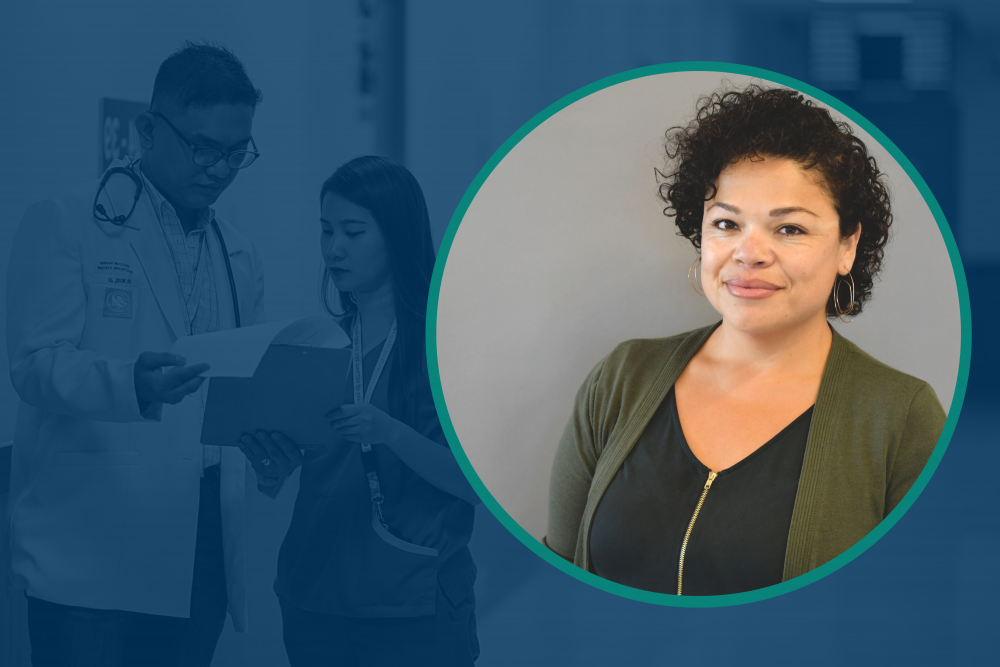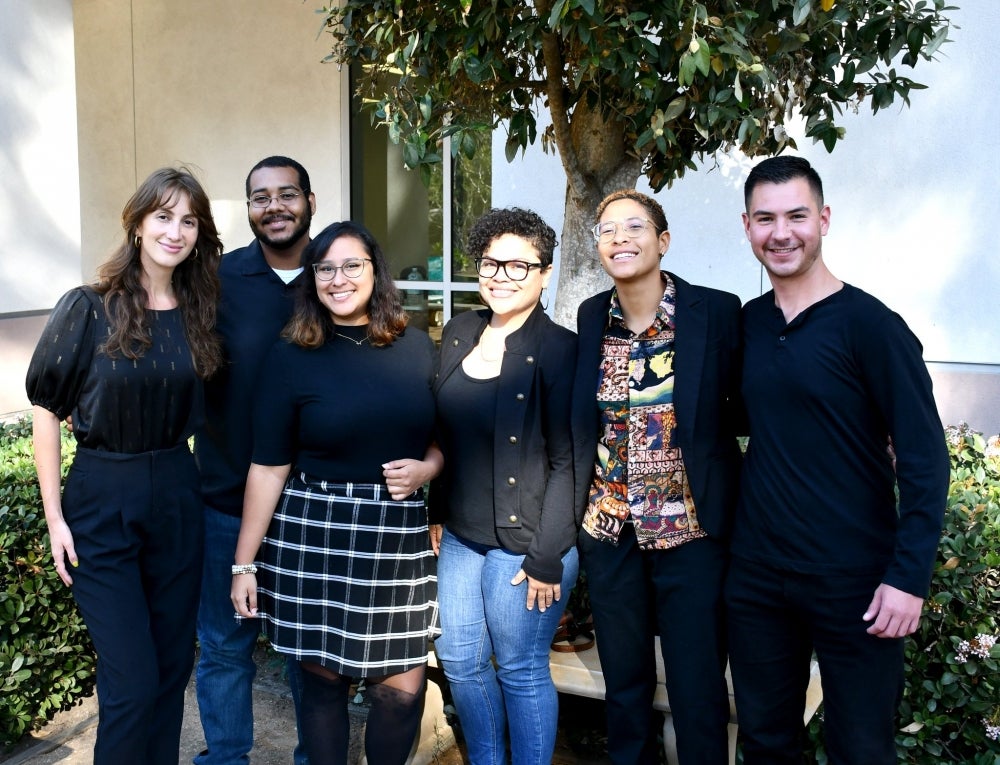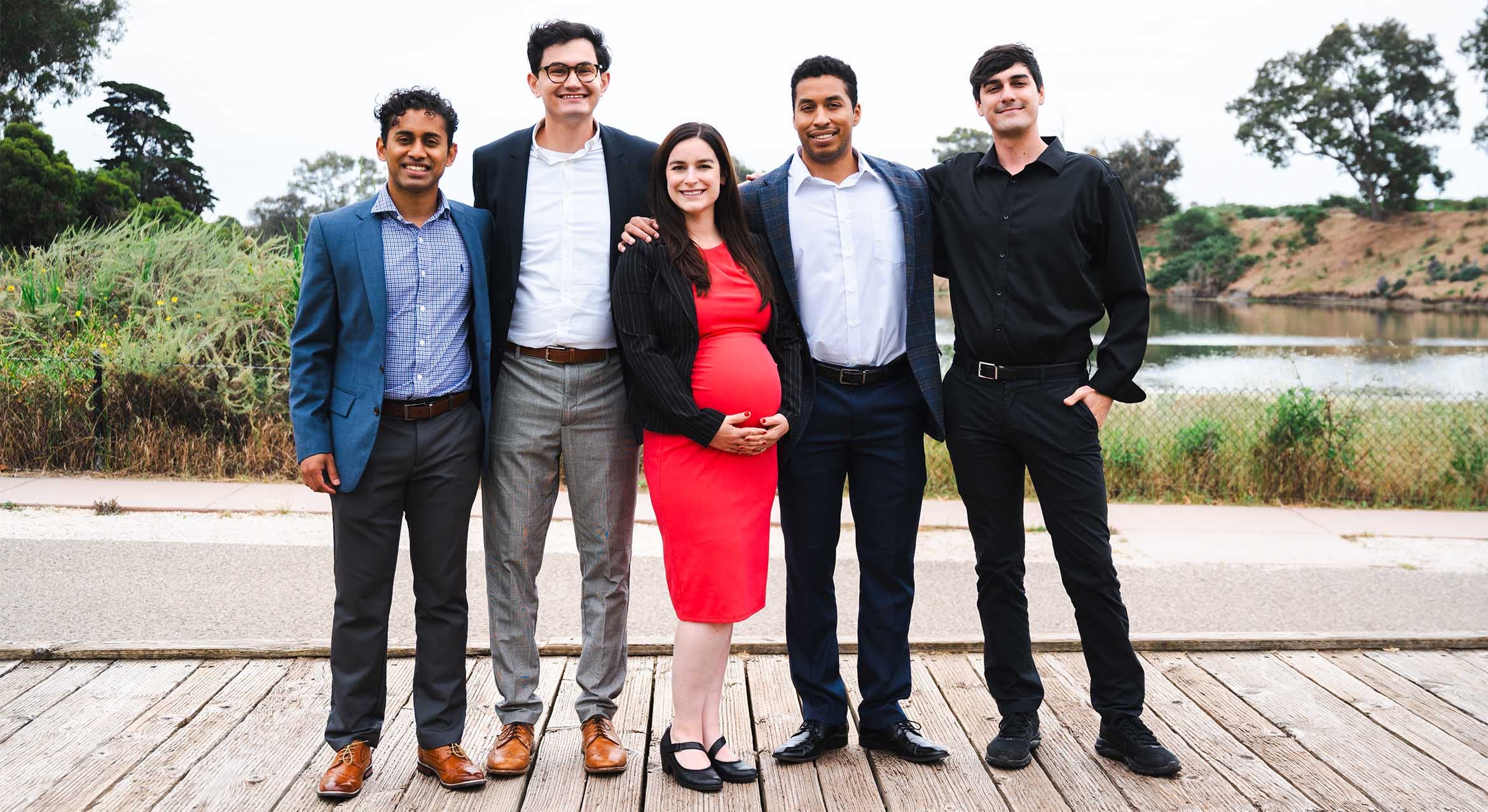Centering LBTQ+ Women, Nonbinary Health
Few would contest the importance of taking care of one’s health, but for many — and among some groups more than others — access to general and specialized healthcare services can be hard to come by.
Over 2.5 million Californian women identify as lesbian, bisexual, transgender and/or queer (LBTQ+), with a growing group of people identifying as nonbinary. However, that roughly 6% share of the population — which includes and intersects with some of the state’s most vulnerable communities — has historically been overlooked by healthcare programs.
A new $17.5 million state-funded program will support a first step towards equitable access to health care for LBTQ+ women and nonbinary Californians. The California Department of Public Health’s (CDPH) LBTQ Health Equity Initiative provides a sizeable economic infusion for health services specifically aimed at this population.
UC Santa Barbara’s Alison Cerezo, an associate professor of counseling psychology at the Gevirtz Graduate School of Education, is the initiative’s principal investigator and lead strategy evaluator.
“The initiative supports health navigation programs that connect LBTQ families to services as well as those that diversify who gets access to services. We’re focusing on Spanish language families and Indigenous language families within the larger Latinx community,” Cerezo said, noting that the funding will go to the whole state, especially underserved regions such as eastern counties.
With Cerezo at the helm, a group of UC Santa Barbara researchers will help the state define and establish metrics for evaluating and funding nonprofit organizations that target narrowing the health equity shortfall. Cerezo’s team includes staff members París DaSilva and Eric Cortez and graduate student researchers Jacquelyn Chin, Isaiah Jay Jones, Amaranta Ramirez, Nicole Ramirez and David Rivera.
While prioritizing LBTQ+ women and nonbinary people, the initiative further emphasizes the intersections of historically excluded groups — where inequity is generally exacerbated — including increased aid to youth, the elderly and BIPOC communities. The goal is to direct people to culturally and linguistically appropriate care and to fund projects that build up equitable access to health care.
Funding is earmarked for four project areas: healthcare access demonstration, community education and outreach, service provider capacity building and LBTQ+ research.
At UCSB, Cerezo and their team will be crunching the numbers. “Our job is to set the stage for how the state should collect and work with data to tell the story of how funding of community grassroots organizations improves services and can help increase health equity across the state,” said Cerezo, “so programs are not considered in isolation or in silos but in a way that reflects the strength of communities and the collaborations that are already ongoing.”
The initiative centralizes the needs of youth, elders, people of color and systems-involved folks, Cerezo said. “It’s meant to help fund services that for a very long time the state has overlooked while only focused on MSM (men who have sex with men) and HIV.”
Cerezo’s research focuses on LGBT+ health disparities from an intersectional health lens. They use qualitative, quantitative and mixed methodologies and have carried out research on sexual and gender diverse communities in the U.S. and Mexico. Cerezo held a tenured position at San Francisco State University before coming to UC Santa Barbara in 2018. “I wanted a position focused on research and mentoring future leaders,” they said of the move.
As part of their work in communities, Cerezo joined the LA County Lesbian, Bisexual & Queer Women’s Health Collaborative, which had successfully advocated to the state for funds towards equity in women’s health — leading in part to the $17.5 million appropriation from the state’s budget to create the LBTQ Health Equity Initiative.
“While I was in the collaborative, I was recruited by my colleagues at the Iris Cantor Women’s Health Research Center at UCLA to run a study on the effects of the pandemic on LGBTQ women’s health in Los Angeles County,” Cerezo said. “I also have presented about LGBTQ women’s health in vulnerable communities such as jails, child protective services, homeless shelters or women receiving services like WIC, California’s supplemental nutrition program for women, infants and children.
“I was becoming active in these communities, so when the state’s funding to focus on women’s health came through — which to our knowledge is the first time this has been done — I was invited to put in a proposal, and eventually they made the offer, and with the support of UCSB, I was able to take on the evaluator role for the initiative.”
The initiative’s philosophy is built on an understanding of the social and structural determinants of health, including access to primary mental health services, Cerezo explained.
To tell a coherent story of how funding improved services by centering women and nonbinary people, and using an intersectional lens, Cerezo’s team will examine consistent data points across all programs that receive funding. They will also look to showcase and develop metrics for each program individually.
“I’m part of the community; I’m a queer person myself so that matters to me,” Cerezo said. “In my experience as a mental health provider and as a researcher focused on LGBTQ health disparities from a racial justice lens, it’s not often that there’s a focus on the intersections — and that gets lonely. I wanted to build a team focused on the intersections; it’s something really important that I can do.”
The theory of intersectionality, Cerezo added, was created by Black women in the 1960s. “The need to use an intersectional lens is nothing new. Women of color have been talking for a long time about health equity,” they said.
Cerezo said they hope the UCSB evaluation team’s work will set an example for other states.





